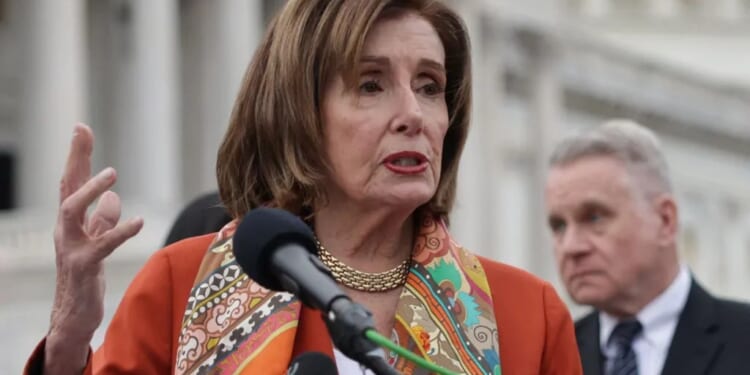We wish Speaker Emerita Rep. Nancy Pelosi (D-CA) happiness and health in her retirement. History will weigh her substantial legacy for decades to come.
One unfortunate aspect of her legacy is already known, and it will be the decline in public trust of Democratic institutions during her speakerships. Pelosi’s soaring personal wealth during that time, the product of well-timed trades in tech stocks, options, and her husband Paul’s venture-capital deals, contributed to a perception that lawmakers use insider information to enrich themselves at the expense of their constituents.
NANCY PELOSI WILL NOT SEEK REELECTION IN 2026
While never formally accused of wrongdoing, Pelosi’s incredible good fortune in the stock market has raised eyebrows for years. In 2021, her husband Paul Pelosi bought $1.95 million in Tesla call options the day before Biden announced EV infrastructure plans that sent TSLA up 20%. In 2023, he traded between $1 million and $5 million of stocks in semiconductors mere days before Congress allocated $52 billion to the industry. And in 2024, he sold 2,000 shares of Visa stock mere months before the DOJ announced its antitrust lawsuit against the company. These perfectly timed deals, among others, netted the power couple tens of millions.
Since becoming speaker, Pelosi’s wealth grew from roughly $30 million to $278 million today.
Efforts to limit or ban lawmakers from trading stocks while in office have failed. The 2012 Stop Trading on Congressional Knowledge (STOCK) Act increased transparency by making congressional disclosures searchable online for the first time, exposing conflicts of interest, but it lacked enforcement. The Act did not ban spouses or dependents from trading, nor did it create real penalties; the penalty for a member of Congress violating the Act is a paltry $200, hardly a deterrent for insider trading. No member of Congress has been prosecuted for insider trading since the law’s passage. It is a dead letter.
Pelosi isn’t the only lawmaker whose financial transactions prompt suspicion.
Sen. Tommy Tuberville (R-AL), who has reported more trades than 98% of Congress, disclosed between $63,007 and $245,000 worth of trading in defense stocks in 2024 immediately before Ukraine-aid votes. (Tuberville is a staunch defender of lawmakers trading stocks, saying any restrictions would be “ridiculous” and would “really cut back on [the number] of people” who would want to serve in Congress.)
Senate Intelligence Committee Chairman Richard Burr (R-NC) sold $1.7 million in stocks immediately before COVID-19 hit the market in 2020 — and only one week after co-authoring an op-ed in which he reassured constituents about the threat of the COVID-19 pandemic. Burr’s brother-in-law, following a phone call with Burr immediately before the crash, called his broker and dumped stock the same day. As Senate Intel Chair, Burr had received access to classified intelligence reports in January and early February that warned of the pandemic’s severity. Burr came under a criminal investigation for the trades but was not charged.
These are only a few of many examples of troubling financial dealings by lawmakers.
A recent University of Maryland study shows that 86% of the public favors prohibiting stock-trading in individual companies by members of Congress. But Congress is the only body able to outlaw the practice. As yet, there is little appetite in the House to put a stop to the corrupt stock trading practices of its members. Pelosi herself, one of the most powerful congressional leaders in history, has been one of the chief opponents of reform.
It isn’t cynical to suspect they are shaping policy with their bank accounts in mind — it’s common sense.
CHENEY, PELOSI, AND MAMDANI — THE AMERICAN SAGA CONTINUES
In September, Rep. Chip Roy (R-TX) and Rep. Seth Magaziner (D-RI) introduced H.R. 5106, the Restore Trust in Congress Act. The bill seeks to build on the STOCK Act by closing loopholes for family members and leveraged trades with mandatory divestment within 180 days and a 10% penalty plus full profit forfeiture for violations. The law has real teeth, and it should be passed as is.
A real crackdown on insider trading in Congress would be a fitting tribute to the retiring Speaker Emerita. Lawmakers should be forced to choose once and for all: serve the people or serve themselves, and nothing in between.















